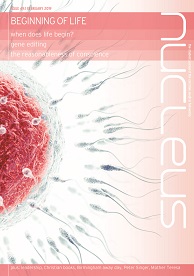'Your eyes saw my unformed body; all the days ordained for me were written in your book before one of them came to be.' (Psalm 139:16)
Today's parents have access to images of their unborn child that would have been unthinkable only a couple of generations ago. Ultrasound allows us to see a clearly formed image of a baby by twelve weeks of pregnancy, and Google is awash with clinics ready to provide a '3D' or even '4D' view of an unborn baby. Microscopy enables us to see the embryos at very early stages, and to understand the process of conception much better than before.
Such knowledge has not necessarily led to more rights for the unborn. Laws governing abortion have liberalised across the world over the last century. Many countries initially legalised abortion under limited circumstances with strict safeguards, but there is a current trend towards lighter regulation, and indeed towards removal of statutory protections as some continue to campaign for in the UK.
The beginning of life isn't just about abortion. Our understanding of the status of the early embryo will affect our attitudes to some forms of contraception, and the way in which we think about embryo research and fertility treatment.
The rapidly advancing field of genetics advances our understanding both of pathology and therapeutics, but also raises questions. At what point does a genetic intervention move beyond a 'repair', and become a 'redesign'? If we have the technology to manipulate traits that are thought to be undesirable, but not in themselves pathological, should we use it? And if we should use it, is it safe, particularly if we make a change that can be passed onto the next generation (germ line editing)? Even if it is safe, can those future generations be said to have given consent to such a treatment?
Amidst this minefield, it can be tempting to choose a specialism that avoids such issues. There are very few such things. Perhaps only the geriatrician is entirely exempt. The orthopaedic surgeon will need to know something about the thromboembolic risk of a contraceptive regularly taken by his young patient who has suffered trauma, and the psychiatrist may well see a patient where childlessness or a previous miscarriage have played a significant part in their story. The neonatologist has to grapple with difficult questions balancing available treatments and likely outcomes in very premature babies.
For those engaged in clinical work, we are often forced to consider early life questions as they arise in the normal course of work. But no Christian should be ignoring these issues. If unborn children are persons worthy of protection, then they are one of the most vulnerable and ignored groups in society. 'Speak up for those who cannot speak for themselves' (Proverbs 31:8a) surely applies at least as much as to other vulnerable groups. So even for the layperson, understanding these issues and keeping abreast of current political developments is an important part of our Christian discipleship and witness.
Laurence Crutchlow is CMF Associate Head of Student Ministries and a GP in London
































